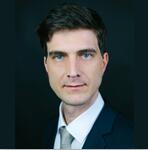Invited Speaker----Dr. Bernd M. Schönbauer

Dr. Bernd M. Schönbauer, Institute of Physics and Materials Science, University of Natural Resources and Life Sciences (BOKU), Austria
Bernd Schönbauer is a senior scientist and lecturer at the Institute of Physics and Material Sciences at BOKU, Vienna. He studied Physics at the University of Freiburg, Germany, and the Technical University of Vienna, Austria. In 2014, he received his doctorate on the subject of corrosion-fatigue of steam turbine blade steels from TU Vienna. From 2015 to 2016, he was working as a postdoctoral research fellow at the Institute of Materials Science and Technology, Fukuoka University, Japan.
His current research focuses on the torsional fatigue behaviour at different load ratios, variable amplitude loading of steels and environmental influences on fatigue fracture mechanisms in the very high cycle fatigue regime. Further interests are defect tolerance under multiaxial loading, role of pitting corrosion on fatigue strength (pit-to-crack transition) and application of the ultrasonic fatigue testing technique for a broad variety of test conditions.
Dr. Schönbauer´s research activities in fatigue and fracture mechanics resulted in numerous publications in academic journals and conference proceedings as well as oral presentations at scientific conferences. He serves as a reviewer for various international journals.
Speech Title: On the defect tolerance of martensitic stainless steels under cyclic loading
Abstract: The influences of small defects on the fatigue properties of steels have been subject of several investigations. It has been often shown that defects up to a size of approximately 1 mm can be treated as small cracks. In that case, the fatigue limit can be easily predicted using fracture mechanics approaches that consider the size dependency of the threshold stress intensity factor for small cracks.
Recent studies by the authors on the defect tolerance of stainless steels, however, have shown that these materials feature different behaviour. In particular, the transition size from small to large defects – above which the threshold stress intensity factor becomes a constant value – is in the order of one magnitude lower than found for other steels. This means that conventional small crack approaches for stainless steels become non-conservative for defects with √("area" ) larger than approximately 100 µm. On the other hand, the fatigue strength is highly sensitive to the notch root radius of a defect. For instance, small drilled holes with diameters of 100 µm or larger may have significantly different influence compared to cracks of similar size. In contrast, defects with locally small notch roots – such as corrosion pits or sharp notches – can be treated as equivalent cracks.
In this study, the defect tolerance of martensitic stainless steels 17 4PH and AISI420 under uniaxial and torsional cyclic loads is investigated. For this, small artificial defects as drilled holes, circumferential sharp notches and corrosion pits are introduced in test specimens. The experimental data are evaluated in order to determine a predictive approach for the fatigue strength with consideration of the defect size and shape as well as the loading conditions (uniaxial, torsional, load ratio).

